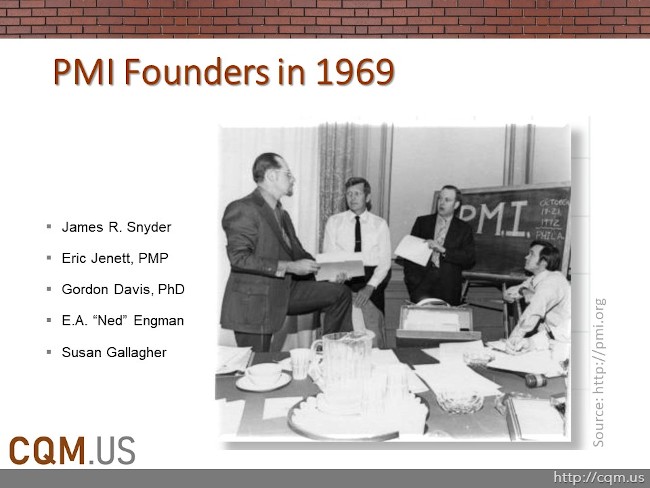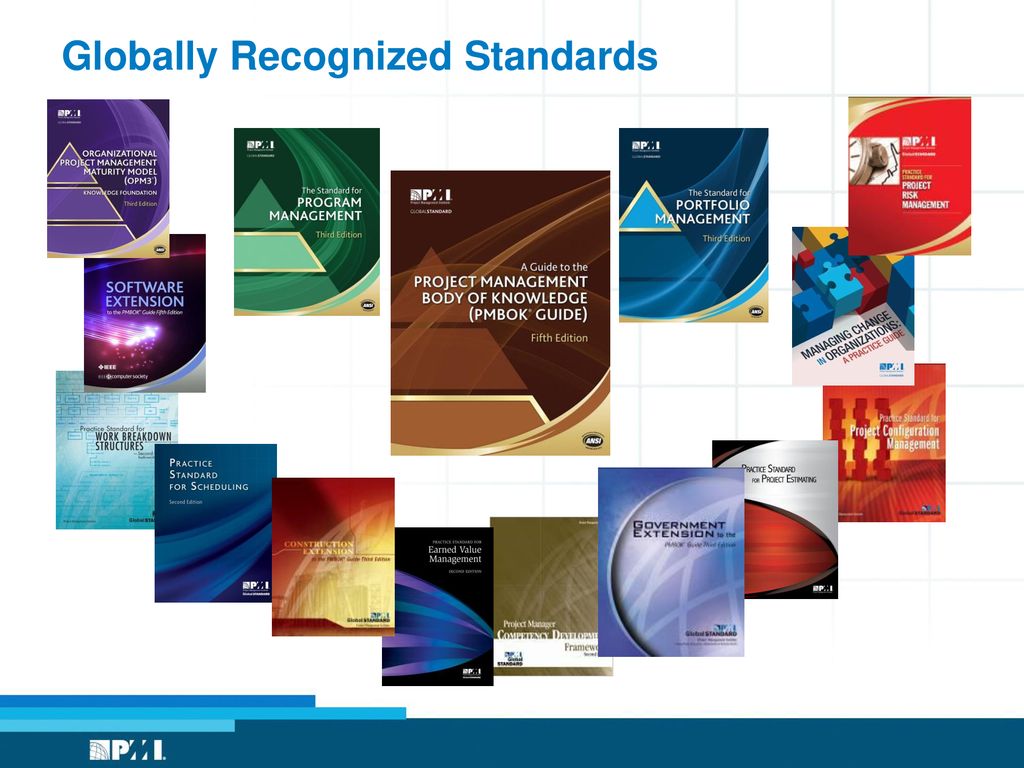Project Management Institute PMI plays a great role in forming the CQM Methodology and Framework. In fact, CQM Community started with a Breakfast Panel in November 19th, 2019 with participants from the Project Management Institute Great Lakes Chapter Construction Community in Detroit, Michigan. Similarly, Project Management Institute was developed by Construction Project Managers gathered for a dinner meeting at the Three Threes Restaurant in Philadelphia, Pennsylvania early 1969. (PMI) The founders of PMI Jim Snyder and Gordon Davis had several months of discussion to develop the first document that was the basis of Project Management Book of Knowledge to standardize and help to manage complex Construction Projects: “advance the practice, science and profession of project management”. After its incorporation, PMI organized the first symposium in Atlanta, Georgia with 26 members and 80 people attending the symposium. The first edition of PMBoK wasn’t published until 1996. Source: Wikipedia

Today, PMI serves more than 3 million professionals in 208 countries and territories around the world with over 300 chapters and 10,000 volunteers. Its services include the development of standards, research, education, publication, networking-opportunities in local chapters, hosting conferences and training seminars, and providing accreditation in project management. View an interesting Timeline of PMI’s 50-year history here: http://pmi50years.dyress.com/
PMBoK Framework
The main reason PMI is used in CQM is the well developed and organized Framework suggested by PMBoK which has become the lead benchmark for other systems and methodologies as well. PMBoK Framework is based on the TQM PDCA Cycle and has some improvements on it. The PMBoK Framwork does not suggest any type of Methodology on how to do Project Management, however, it has collected all the best practices in an organized fashion to create a system of Inputs and Outputs with defined processes and documents. Therefore, all Project Management Professionals could have a common language when talking about Project Management Lingo and Terminology. The PMBoK was just the start of many more Standards, Research Papers, and Publications to follow.

Construction Quality Management will need a Book of Knowledge to have the same effort organized and structured for the benefit of the Construction Industry for the next 50 years.
PMI Certifications
PMI is well known for the Project Management Professional Certification. However, there are other certifications available in Program Management Professional (PgMP), Portfolio Management Professional (PfMP), PMI Agile Certified Practitioner (PMI-ACP), PMI Risk Management Professional (PMI-RMP), PMI Scheduling Professional (PMI-SP) and PMI Professional in Business Analysis (PMI-PBA).
Certification means that the candidate has gone through formal training and has demonstrated an understanding of the system, terminology, and standard to be able to advocate and apply learning to actual work. Many owners have strived to make sure that their Supply Chain Management goes through the same training when handling their projects, that’s why the US Army Corps of Engineers have developed the CQM-C Training for Contractors. Other Owners in Private and Public sector should follow suit and standardize their Quality Management Manual and ask their SCM to demonstrate full understanding and compliance with their CQM expectations and requirements.
PMI Initiatives and Awards
PMI Philosophy is based on sharing knowledge and continuous improvement. PMI develops standards, best practice reviews, Initiatives, and Awards on a periodic basis and many of them are to provide solutions for business outcomes. PMI has moved from just Project Management to provide better Project Outputs to a Business Solution for better Business Outcomes. Similar to PMI, CQM intends to promote quality in all aspects of a Construction-related organization by developing a robust system, abiding by an ethical code of conduct, holding collaborative events, and giving awards to worthy projects in the future as the CQM Community develops.